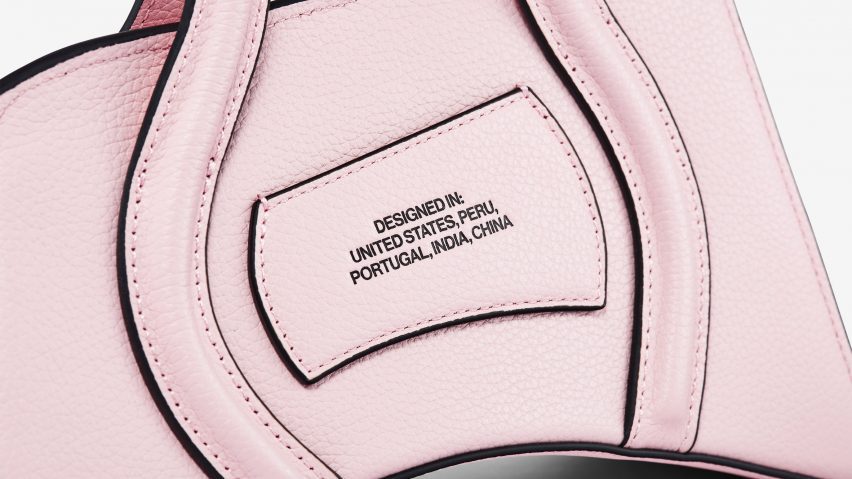
MSCHF creates handbag to highlight "hidden creative labor" of global factories
New York art collective MSCHF has created a "Frankenstein" handbag by asking a series of global factories to create an object through prompts, including references to well-known products by designer brands.
MSCHF created the handbag through a global game of "telephone", in which they sent vague instructions and reference images in succession to four leather-working factories to form a final design.
The project seeks to "protagonize" these factories, which do work where name-brand design labels might leave ambiguities.
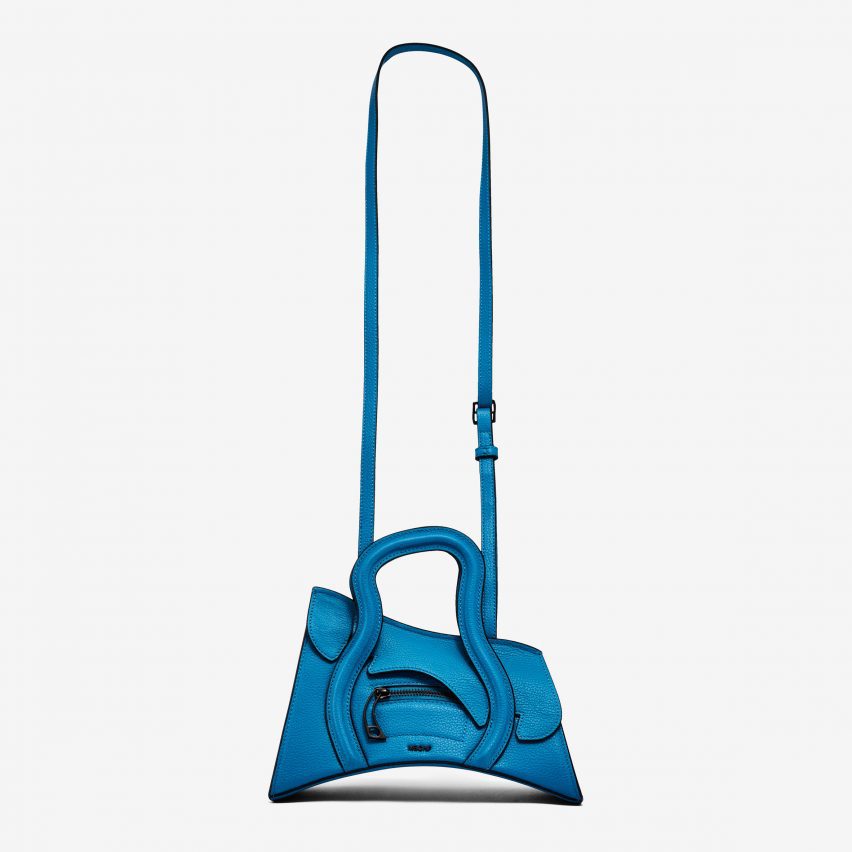
"Factories do a tremendous amount of creative work behind the scenes," said MSCHF. "The goal of Global Supply Chain Telephone was to use this hidden creative labor from the factory as the design process for the bag."
"MSCHF has seen this over and over again with our shoe program and beyond, where problem-solving happens factory-side that we didn't anticipate, or decisions come back from the factory that surprises us with an unexpected piece of problem-solving – even if it's not always 'good,' it's distinctly creative."
MSCHF decided to use this behind-the-scenes problem-solving as the full design process to create the Global Supply Chain Telephone Handbag.
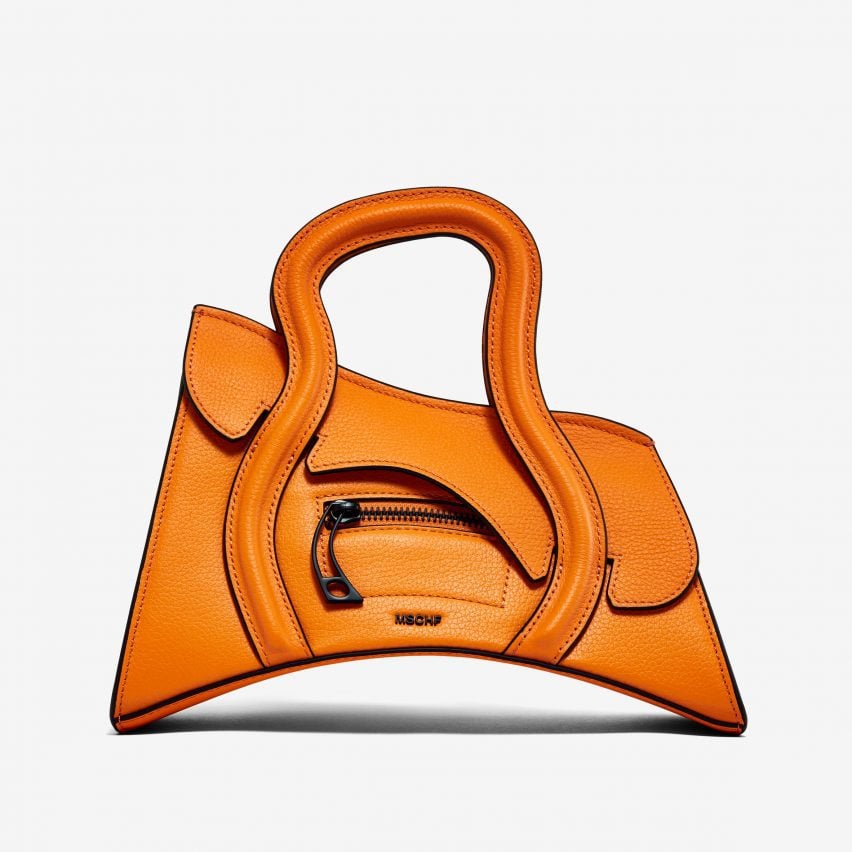
Made of leather and twill interior, its final form features a sharp-cornered, curved bottom, with a twisted handle, curved front flap and a shoulder strap.
A front pocket is closed with a curved zipper, while an internal pocket and back pocket have been inscribed with labelling.
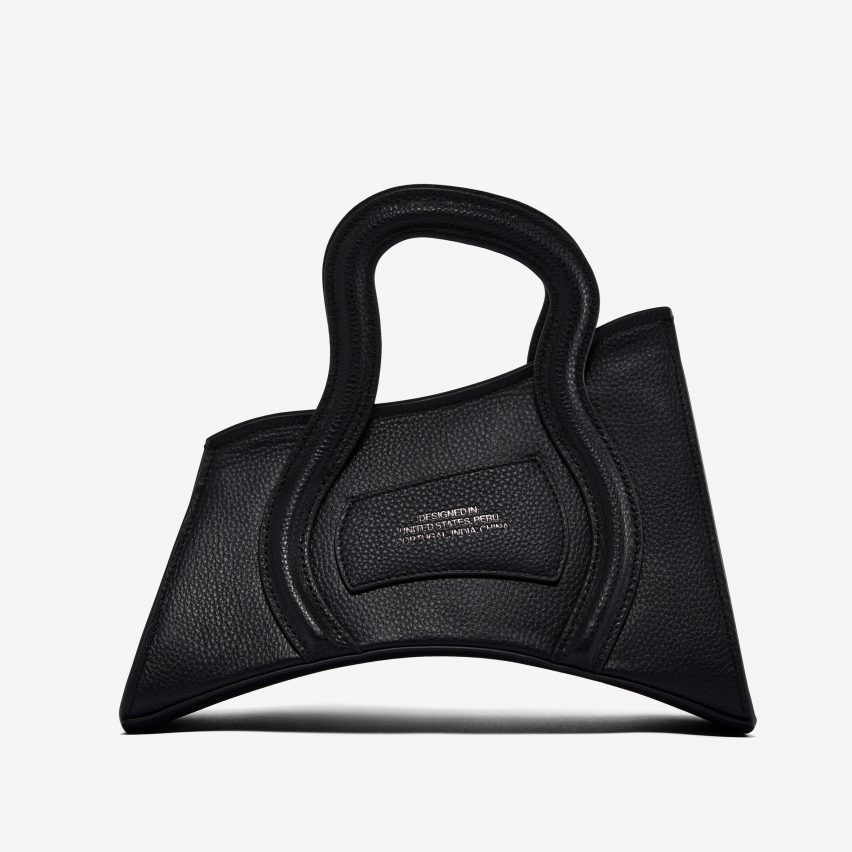
MSCHF began the design process by sending the instructions "knock off a Birkin bag" to a factory in Peru, keeping the prompt vague to leave the bulk of the creative decision-making to the manufacturers.
"Typically factories proactively fill in the gaps where designers have not (or did not know) to specify something," said the studio. "We deliberately left as many such gaps as possible."
The resulting design of this first prompt was then sent to a Portugal factory, with MSCHF asking it to adjust the design "to be more like" the Celine Luggage Bag.
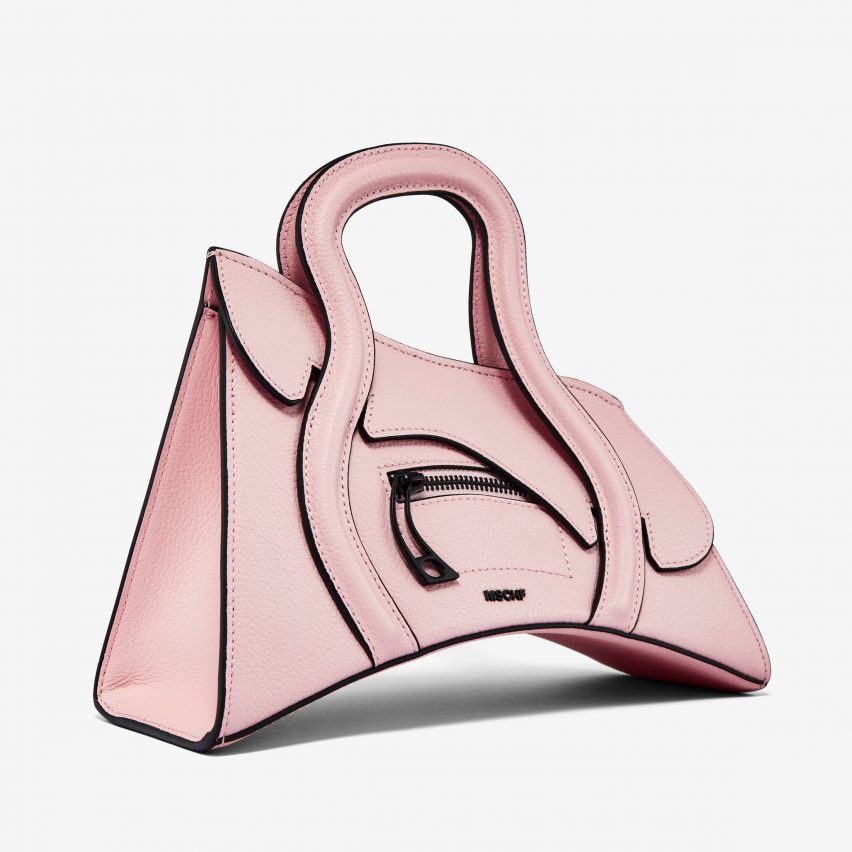
At the third factory in India, the already-modified "Frankenstein" bag was adjusted to appear more like the kidney-shaped Dior Saddle Bag and at a fourth studio in China, it was made to look more like the Balenciaga Hourglass Handbag, where it received its distinctive curved silhouette.
The studio performed a final pass on the result, creating custom hardware, and making some adjustments to materials and validating its construction.
The project aimed to highlight the global supply chain as a tool used by many.
"The global supply chain is a single, enormous, merged ecosystem with myriad individual interfaces," said the studio. "We all, if you trace back high enough up the chain, are using the same tool. And the tool is alive."
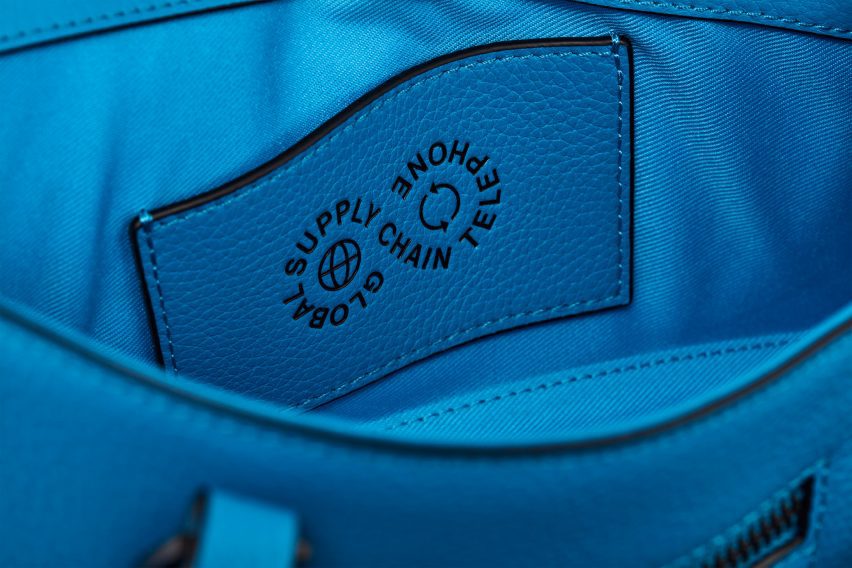
"Anyone seriously engaged with manufacturing understands the factory is not a computer, taking in perfect instructions and outputting perfect execution. The factory performs tremendous amounts of invisible creative labor."
The studio often explores projects surrounding consumerism, such as its microscopic Louis Vuitton bag, which used its dwindling size to comment on a lack of functionality in luxury fashion.
"A practical object is boiled down into jewellery, all of its putative function evaporated; for luxury objects, useability is the angels' share," commented the studio on the project.
It has also landed in legal trouble when playing with the limits of influence and trademarks. In 2021, MSCHF was sued by Nike for its "unauthorised" Satan Shoe.
The photography is courtesy of MSCHF.